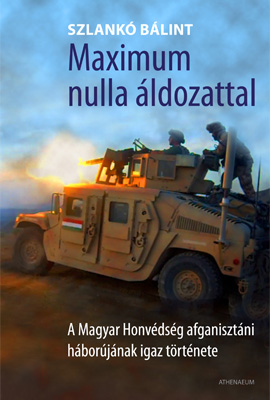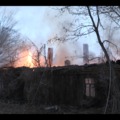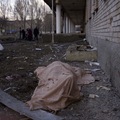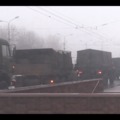That may have to wait until an extra detachment of U.S. Army troops, part of the recent surge of American forces, arrives in Baghlan sometime this spring.
In Northern Afghanistan, a Murky Insurgency
2010-05-02 08:26 - Szlankó Bálint
World Politics Review
In Northern Afghanistan, a Murky Insurgency
by Balint Szlanko
BAGHLAN PROVINCE, Afghanistan -- The man standing up at the provincial governor's audience seemed agitated but forceful. He told of a dream in which the Prophet Mohammed had instructed him to go forth and tell the people that the foreigners are the enemies of Islam, and that the faithful should all join the Taliban to fight them.
The man was quickly ushered out, while the governor visibly rolled his eyes. But it was a clear reminder of how close to the surface animosity against foreigners runs in this previously stable part of Afghanistan.
The security situation in Baghlan, hitherto a relatively peaceful province just north of Kabul, has been going downhill for about a year, along with the rest of the north. Insurgent attacks on convoys along the main north-south highway, an important artery for NATO supplies, have become commonplace, as have raids on police checkpoints.
Militants even hold up civilian cars on the highway, taking money and even kidnapping occupants. The government has essentially lost control of about a third of the most-populated areas of the province, the mainly Pashtun areas north of the provincial capital, Pul-e Khumri.
"Every teacher has to pay them 500 or 1000 afghani [about $10-20] per month," says Nurullah, a teacher in insurgent-controlled Baghlan-e Jadid district. "Some are forced to give them food or cook for them. Some are forced to take a weapon and join them. Farmers have to give 10 percent [of their earnings]." Like many Afghans, Nurullah uses only one name.
Baghlan-e Jadid and neighboring Dahana-e Ghori are essentially insurgent enclaves where rebel factions collect taxes and run their own administration, according to interviews conducted with Afghan civilians working in these areas. Most aid organizations no longer dare go to these parts since one of them.
A Murky Insurgency
The insurgency in Baghlan is composed of two main factions. One group is technically part of the main, Quetta-based Taliban organization led by Mullah Mohammed Omar. But according to local officials, it answers to the Peshawar military council just across the border in Pakistan.
The second is the Hizb-i-Islami network of Gulbuddin Hekmatyar, the Islamist warlord who came to prominence in the anti-Soviet struggle of the 1980s. The stronger of the two, Hizb has been traditionally important in the region. The governor, Akbar Barakzai, is a former Hizb member, as is Amir Gul, the district governor of Baghlan-e Jadid, who in 2006 was briefly jailed by Nato forces.
It is estimated that each organization has hundreds of gunmen, although they may not all answer to the same central command. "We can't negotiate with them because they have a different commander in every district, and they're all running their own turf," said one NGO official, who declined to be named.
The two groups have traditionally cooperated, but rivalry over influence and taxes in early March led to violent clashes between them in which up to 80 fighters were killed. It is suggested that recent peace overtures to the government by the Hizb leadership may have also played a part.
There are also at least two pro-government militias operating in the area. They are run by former mujahedeen and paid by the government to fight the insurgents. But locals say it's unclear where these organizations really stand.
"During the day they are with the government, during the night, with the Taliban," says Sayed Mansoor Naderi, a local member of parliament, with a knowing grin. Locals say that it would be inconceivable for people like district governor Amir Gul to stay alive, let alone operate, in essentially insurgent-held territory without cutting deals with the militants.
The insurgency is a shady, complicated one, often with no clear dividing lines between the two sides. Baba Abedin, a rebel group commander who joined the government side last December, told a local news agency that he had worked for the national police force before he took up arms against the government a year ago. He said he had developed "differences" with local officials.
Several insurgent groups, totaling more than 100 fighters, have given up fighting and joined the government in the last half-year, indicating a degree of success for the government's reconciliation program. Under the program, former insurgents are given amnesty if they lay down their weapons.
Into the Void
Residents say many of the fighters are local unemployed men who have joined up to make ends meet. "We used to have industry during Russian times, factories. Today, we have nothing. Everybody is unemployed," laments Mohammed Assem, a local member of parliament. Unemployment is said to be as high as 50 percent.
Baghlanis regularly complain that despite the relative stability of recent years, their province has seen almost no development, despite 2007 government statistics showing Baghlan to be the fifth most supported province in the country. "Nothing has been built. You see these nice houses here and there, but they all belong to the government or the rich people," says Sohrab, a 40-year-old carpenter in Pul-e Khumri. Most of the old industrial buildings stand empty. International aid organisations and the local Nato provincial reconstruction team (PRT), led by Hungary, seem to have built little more than a few schools and clinics.
Baghlan has little NATO presence to provide security. The Hungarian PRT of about 240 troops is prohibited from offensive operations under its national mandate. A small team of U.S. and Hungarian army trainers are mentoring a battalion of Afghan army troops. They engage the insurgents regularly, as do the police, but so far have been unable to push the militants out.
Címkék: english afganisztán
A bejegyzés trackback címe:
https://drotontul.blog.hu/api/trackback/id/1967873
Kommentek:
A hozzászólások a vonatkozó jogszabályok értelmében felhasználói tartalomnak minősülnek, értük a szolgáltatás technikai üzemeltetője semmilyen felelősséget nem vállal, azokat nem ellenőrzi. Kifogás esetén forduljon a blog szerkesztőjéhez. Részletek a Felhasználási feltételekben és az adatvédelmi tájékoztatóban.








